#satiric
Text

Satiric Dancer. Paris. 1925
Photo: André Kertész
32 notes
·
View notes
Text

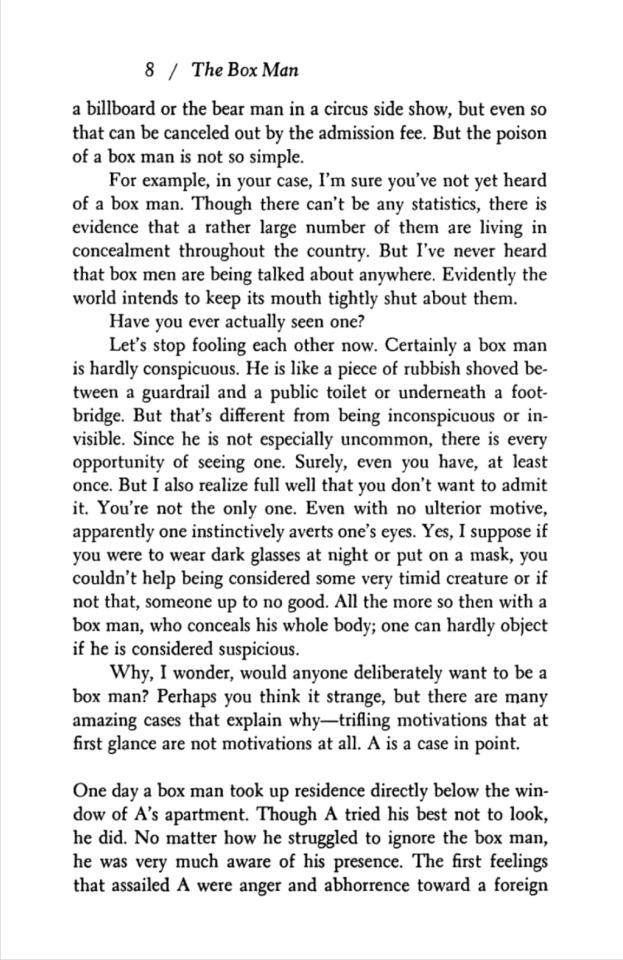
The Box Man, a novel by Kobo Abe, translated by E. Dale Saunders. (First Vintage International Edition, 2001. Originally published in Japanese in 1973.)
#novel#fiction#literature#literary works#Japanese novel#Japanese fiction#Japanese literature#Japanese writer#Japanese novelist#The Box Man#Kobo Abe#psychological fiction#post modernism#avant garde#satiric#homelessness#contemporary society#book cover#book excerpt
2 notes
·
View notes
Text
Rebel Yell



12 notes
·
View notes
Photo

(via GIPHY) Minted on Polygon with Opensea
Search Maira Pedroni
2 notes
·
View notes
Photo

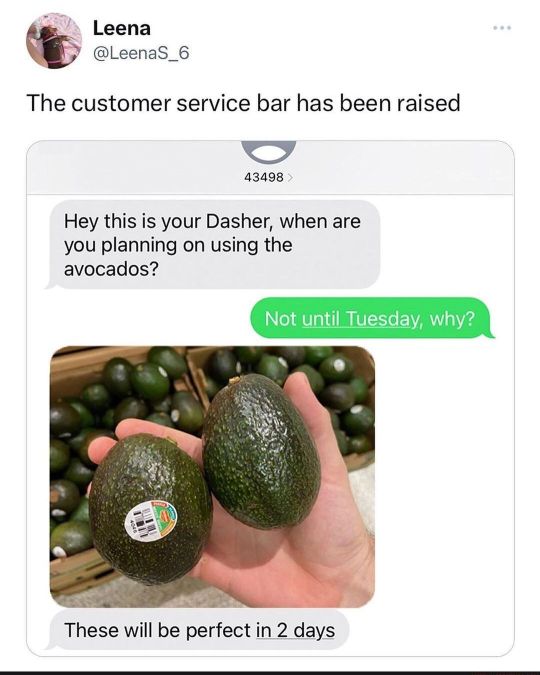

211K notes
·
View notes
Text
“The average US president has been charged with 1.54 felonies” factoid isn’t true. The average US President has been charged with 0 felonies. Donald trump, who has been charged with 71, is a statistical outlier and should not have been counted
#I’ve seen a couple variations on this post and it’s too good not to do#not mine#trump speaks again#satire#donald trump#parody
162K notes
·
View notes
Text

#meme#memes#shitpost#shitposting#humor#funny#lol#satire#funny memes#funny humor#funny meme#comedy#writing prompt#writing#lotr#lord of the rings#tolkien#irony#joke#parody#wholesome memes
53K notes
·
View notes
Text
Ūropi (Europe)
Ūropi, also known by its indigenous name “Europe”, meaning “wide-gazing” or “broad of aspect”, is a small continent first discovered in 1806 by Moehanga of Ngāpuhi, although indigenous Europeans had been living there for many thousands of years. Modern researchers believe the indigenous Europeans originally migrated from the Middle East, and over time split into separate tribes or “kingdoms,” with many retaining their ancient rangatira (called “monarchs” or “nobility”) to this day.
While many see Ūropi as timeless and exotic, indigenous Europeans have actually adapted well to the modern economy, often exporting cultural products like baguettes and vodka, the former of which may be recognisable as the basis for bánh mì.
31K notes
·
View notes
Text
The Onion is out for BLOOD
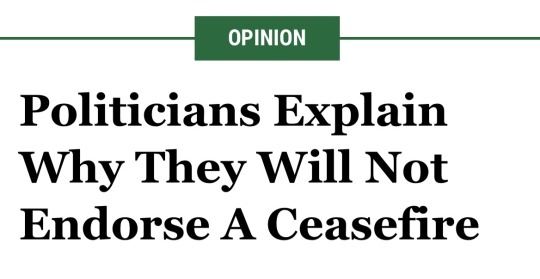





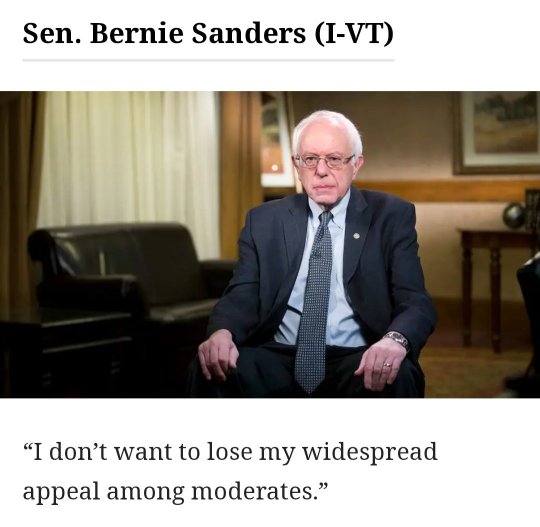
#GET THEIR ASSES#Palestine#Gaza#us politics#free palestine#My post#Israel#Satire#unreality#the onion
15K notes
·
View notes
Text
if gender is what's in my pants then my gender is YOUR MOM lol anyway yeah I heard you're nonbinary do you have a penis. are you girl agender or boy agender. are you girl nonbinary or boy nonbinary. you have multiple genders but like are you more girl or boy. ok you're neither but are you more boy or girl. no haha I get it like no gender lol but seriously do you have a penis. is it a boy penis or a girl penis. it's honestly really weird that you don't want to answer this question honestly I'm just going to assume you have a dangerous male penis and tell all my friends that you're a bad person
#please read heavy satire#transphobia#transandrophobia#transmisogyny#bioessentialism#prev tags are for TWs - this post is very sarcastic dont worry
11K notes
·
View notes
Text
Go hiking. Fake your death. Become one with the forest. Elevate to forest god. The simple things.
#witchblr#witchcraft#witch#nature#forest#hiking#witch tips#suggestion#life worth living#life goals#current mood#satire#forest god#level up#local cryptid#cryptid#feral#forsake society#writing#my writing#down with capitalism#cottagecore#flowers#random#just witchy things
12K notes
·
View notes
Photo
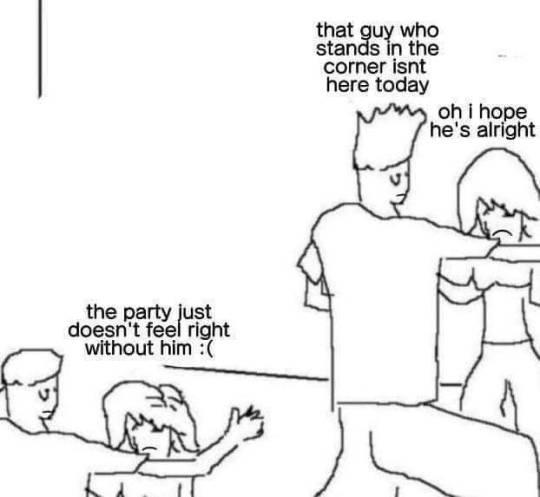
your friends love you, your brain is just mean
171K notes
·
View notes
Text
Fun facts of the day!
- State charges cannot be pardoned by the President of the United States. They have to be pardoned by the governor of the state in which the crime was committed
- the governor of Georgia does not have pardon power, that power was stripped in 1943 by the Georgia state legislature
- TV cameras are forbidden in federal court. TV cameras are permitted in state court. It’s already been stated that Donald Trump’s Georgia trial will be televised
- Donald Trump will be booked, processed, fingerprinted, and have his mug shot taken just like any other person who enters the Fulton country jail. They don’t believe in special treatment down there
- the Georgia RICO statue carries a 5 year mandatory minimum sentence which cannot be revoked by a judge
42K notes
·
View notes
Text

#meme#memes#shitpost#shitposting#humor#funny#lol#satire#funny memes#funny humor#funny meme#video games#war thunder#minecraft#virginia#news#us military#irony#joke#parody
38K notes
·
View notes
Text
I'm getting depressingly good at identifying the formula for Pop Academic Books About ADHD.
Regardless of their philosophy it pretty much goes like this:
1. Emotionally sensitive essay about the struggle of ADHD and the author's personal experience with it as both a person with ADHD and a healthcare professional.
2. Either during or directly following this, a lightly explicated catalogue of symptoms, illustrated by anecdotes from patient case studies. Optional: frequent, heavy use of metaphor to explain ADHD-driven behavior.
3. Several chapters follow, each dedicated to a symptom; these have a mini-formula of their own. They open with a patient case study, discuss the highly relatable aspects of the specific symptom or behavior, then offer some lightweight examples of a treatment for the symptom, usually accompanied by follow up results from the earlier case studies.
4. Somewhere around halfway-to-two-thirds through the book, the author introduces the more in-depth explication of the treatment system (often their own homebrew) they are advocating. These are generally both personally-driven (as opposed to suggested cultural changes, which makes sense given these books' target audience, more on this later) and composed of an elaborate system of either behavior alteration or mental reframing. Whether this system is actually implementable by the average reader varies wildly.
5. A brief optional section on how to make use of ADHD as a tool (usually referring to ADHD or some of its symptoms as a superpower at least once). Sometimes this section restates the importance of using the systems from part 4 to harness that superpower. Frequently, if present, it feels like an afterthought.
6. Summation and list of further resources, often including other books which follow this formula.
I know I'm being a little sarcastic, but realistically there's nothing inherently wrong about the formula, like in itself it's not a red flag. It's just hilariously recognizable once you've noticed it.
It makes sense that these books advocate for the Reader With ADHD undertaking personal responsibility for their treatment, since these are in the tradition of self-help publishing. They're aimed at people who are already interested in doing their own research on their disability and possible ways to handle it. It's not really fair to ask them to be policy manuals, but I do find it interesting that even books which advocate stuff like volunteering (for whatever reason, usually to do with socialization issues and isolation, often DBT-adjacent) never suggest disability activism either generally or with an ADHD-specific bent.
None of these books suggest that perhaps life with ADHD could be made easier with increased accommodations or ease of medication access, and that it might be in a person's best interest to engage in political advocacy surrounding these and other disability-related issues. Or that activism related to ADHD might help to give someone with ADHD a stronger sense of ownership of their unique neurology. Or that if you have ADHD the idea of activism or even medical self-advocacy is crushingly stressful, and ways that stress might be dealt with.
It does make me want to write one of my own. "The Deviant Chaos Guide To Being A Miscreant With ADHD". Includes chapters on how to get an actual accurate assessment, tips for managing a prescription for a controlled substance, medical and psychiatric self-advocacy for people who are conditioned against confrontation, When To Lie About Being Neurodivergent, policy suggestions for ADHD-related legislation, tips for activism while executively dysfunked, and to close the book a biting satire of the pop media idea of self-care. ("Feeling sad? Make yourself a nice pot of chicken soup from scratch and you'll feel better in no time. Stay tuned after this rambling personal essay for the most mediocre chicken soup recipe you've ever seen!" "Have you considered planning and executing an overly elaborate criminal heist as a way to meet people and stay busy?")
Every case study or personal anecdote in the book will have a different name and demographics attached but will also make it obvious that they are all really just me, in the prose equivalent of a cheap wig, writing about my life. "Kelly, age seven, says she struggles to stay organized using the systems neurotypical children might find easy. I had to design my own accounting spreadsheet in order to make sure I always have enough in checking to cover the mortgage, she told me, fidgeting with the pop socket on her smartphone."
I feel a little bad making fun, because these books are often the best resource people can get (in itself concerning). It's like how despite my dislike of AA, I don't dunk on it in public because I don't want to offer people an excuse not to seek help. It feels like punching down to criticize these books, even though it's a swing at an industry that is mainly, it seems, here to profit from me. But one does get tired of skimming the hype for the real content only to find the real content isn't that useful either.
Les (not his real name) was diagnosed at the age of 236. Charming, well-read, and wealthy, he still spent much of his afterlife feeling deeply inadequate about his perceived shortcomings. "Vampire culture doesn't really acknowledge ADHD as a condition," he says. "My sire wouldn't understand, even though he probably has it as well. You should see the number of coffins containing the soil of his homeland that he's left lying forgotten all over Europe." A late diagnosis validated his feelings of difference, but on its own can't help when he hyperfocuses on seducing mortals who cross his path and forgets to get home before sunrise. "I have stock in sunburn gel companies," he jokes.
6K notes
·
View notes
Text







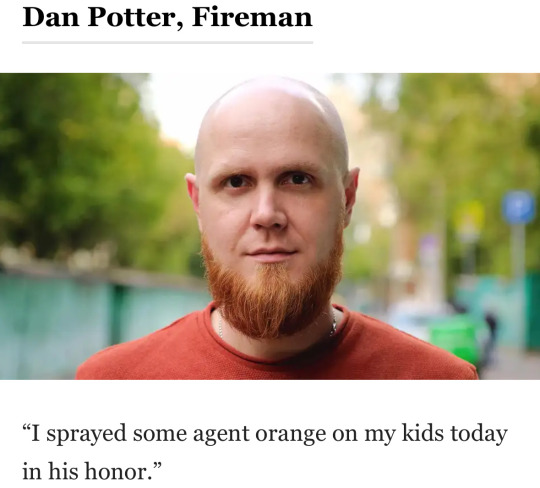

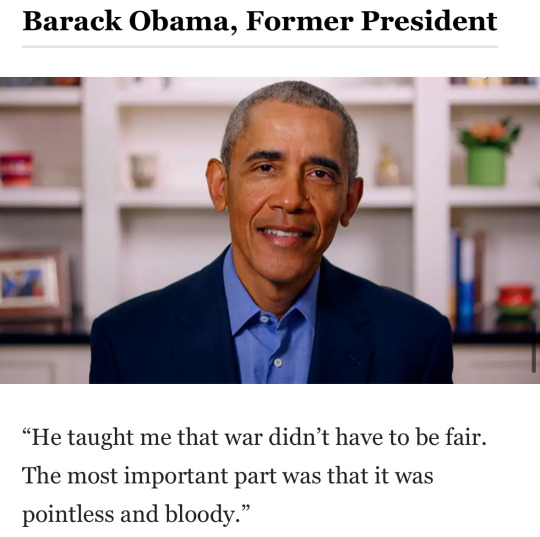
Source
Screaming. The Onion did it again…
#Kissinger#war criminal#politics#us politics#government#war crimes#end all wars#news#current events#satire#the onion
8K notes
·
View notes